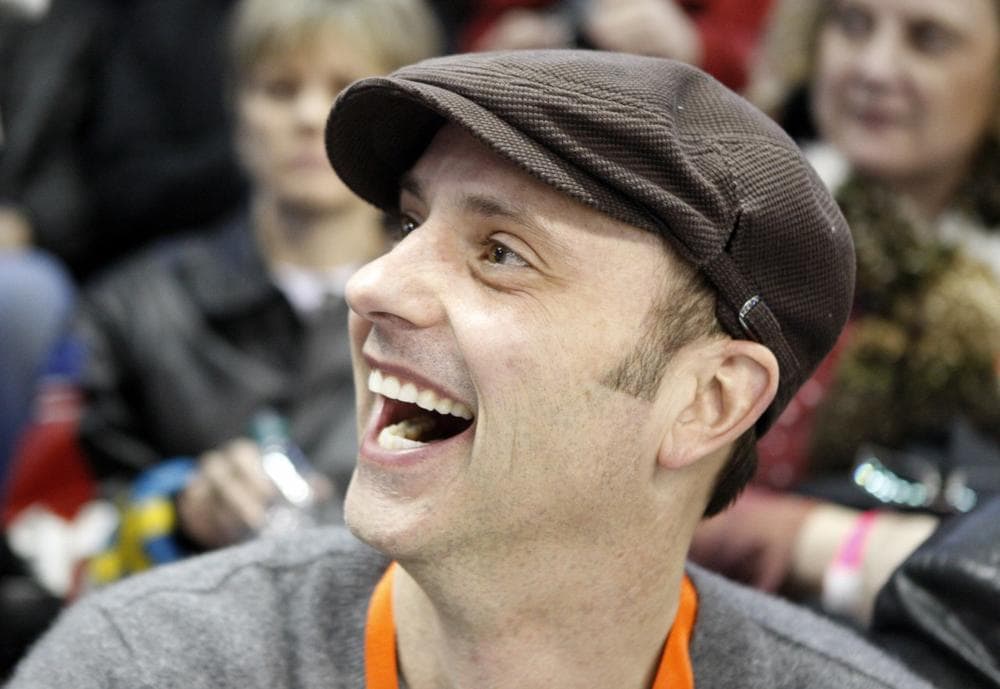Advertisement
Interview
U.S. Delegation To Sochi Includes Two — Now Three — Openly Gay Athletes
Resume
When the 2014 Sochi Winter Olympic Games begin on February 7, the President of the United States will not be there. For the first time in at least 20 years, neither will the first lady, the vice-president, the vice-president's wife, or any current member of the president's cabinet. Christine Brennan called the move a "stroke a genius" in her column for USA Today, and she joined Bill Littlefield for this week's Only A Game.
BL: The White House has been careful to say that this is not a snub and that President Obama is simply too busy to attend the Olympics in person. Nobody's buying that, are they?
CB: No. No one's buying it, no one should, and it's getting a lot of attention. The anti-gay propaganda law that Russia has enacted over the last few months in the run-up to the Sochi Olympic Games that are coming in February is the story of the games. I just think it was absolutely masterful what the president did in sending a message of his disgust and the nation's disgust for this law that discriminates against so many millions of Russians by not going himself and not sending any ... political leader of the country, but sending several openly gay athletes in his place. I think it was absolutely something that we'll be talking about even 20 to 30 years from now in history as a great move by the president.
BL: Those openly gay athletes are former tennis champion Billie Jean King, two time Olympic hockey medalist Caitlin Cahow, and gold medal figure skater Brian Boitano, who came out as gay earlier this week. Were you surprised that he did that?
It was absolutely something that we'll be talking about even 20 to 30 years from now in history as a great move by the president.
Christine Brennan, <em>USA Today</em> columnist
It doesn't surprise me at all, though that — because the news was so big and because the delegation is so linked to Russia's anti-gay law — that Brian, a very smart man, within 48 hours he was making it clear in a very classy way and dignified way that he was gay, but he's also a son and a brother and so much more.
BL: The leaders of Germany and France have also declined to attend these Olympics because of Russia's anti-LBGT legislation, or maybe they're just also very busy. Can this type of protest actually change anything for the gay community in Russia?
CB: My sense would be this: when the Olympics come, of course, we've heard from the International Olympic Committee they're not going to be throwing athletes in jail. But that's for the two and a half weeks of the games. The rest of the time, before the Olympics and after the Olympics, millions of Russians have to live with this law. And just from an observer standpoint here as a columnist and an expert having been to a lot of Olympic Games, I have to believe that those people in their homes watching the opening ceremonies, reading about it, knowing that Billie Jean King — and now of course Brian Boitano — knowing that they are part of that delegation and that is what the President of the United States has sent to Russia, a delegation that includes these openly gay people. That has to be a great feeling. That has to be a feeling that they're not alone. As a journalist, I'm covering this story. As a citizen, that makes me smile.
BL: One Russian news organization is calling the compilation of the U.S. delegation a "disgrace and degradation" and "so much worse" than the 1980 U.S. boycott over the Soviet occupation of Afghanistan. Once these Olympics begin, will we still be talking about politics … or we shift our focus to switch double backflips, hog lines, and triple sow cows?
CB: Well, there certainly is going to be a lot of the latter. The games start and here we go, and everyone is writing their stories and columns and reporting and broadcasting on the events. That happens every Olympic Games. I've covered—this will be my 16th Olympics in a row, Bill, winter and summer starting in L.A. in '84. So I've covered a lot of these. I've never seen a story this big, this early. The boycott in 1980 deprived all these athletes of the opportunity to compete and really didn't achieve the purpose it wanted. Here, of course, all the U.S. athletes will be competing. There is no boycott. But if the message is sent loud and clear, again, I think that's exactly what the White House wants in this case.
This segment aired on December 21, 2013.